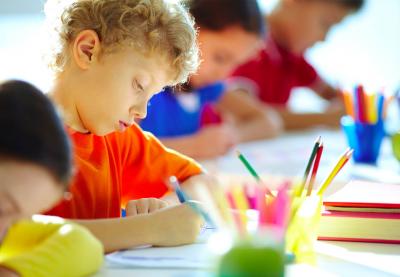It's the middle of the year, and my fourth-grade class is reading Lois Lowry's Number the Stars, historical fiction about a Danish girl named Annemarie whose family hides their Jewish friend Ellen during the Holocaust.
"What privilege do Annemarie and her family have in this situation?" I ask.
"Their privilege is that they're not Jewish," responds one student. "They're not being hunted by the Nazis, so they can go out and do what they want."
"How do they use their privilege?" I continue.
Another student raises her hand and explains, "They use it to save Ellen because she's not safe and they are!"
So often when people hear the word privilege, it goes hand in hand with guilt. The word alone can be enough to trigger knee-jerk defensive reactions. Say the word and some people will list the obstacles and struggles they've faced just to counter the mere idea that they might possess privilege in any way.
My students hail from a myriad of racial, ethnic, cultural, linguistic and religious backgrounds. Privilege is a concept I introduce as a way for them to examine the power they have in certain situations—the power we all have, depending on our identities. It is unfair that some people have privilege while others don't, but I don't teach about it as a reason to feel guilty about one's identity. I want my students to see it as a tool that can be used to elevate others. At the same time, I want them to recognize the injustice that some people have access to resources and opportunities that others don't, based on race, religion, gender, sexual orientation, ability or financial means.
During a series of lessons on allyship and activism, my students explore people who use their privilege to help others. White abolitionists who helped fugitives from slavery get to safety. Students who rally their school to learn sign language in support of deaf classmates. Leaders of various religions who spoke out against the Muslim ban. American citizens who protest in favor of DACA. In these scenarios, the participants recognized their privilege and used it to make a difference in a positive way.
Weeks later in class, our conversations have turned to the construct of race and dominant culture. My students easily identify white, heterosexual, cisgender men as those with the most power in our society. I ask how this makes them feel. "It's not like it makes you a bad person if you're white," muses one student. "But it's really bad if it means that you just want to keep all the power for yourself so you can tell other people what to do."
Privilege remains a fraught subject in our society, and our reactions to it are often reflections of our confidence (or lack thereof) in understanding our own identities, and whether or not we feel truly seen by others. But if we don't recognize our privilege—racial, religious, linguistic or otherwise—we cannot and will not summon it to help others. Recognizing your privilege does not mean taking the blame for the sins of the past; it means using what you have to help make things better for someone else.
Kleinrock is an elementary educator and recipient of the 2018 Teaching Tolerance Award for Excellence in Teaching. You can follow her on Instagram @teachandtransform.

